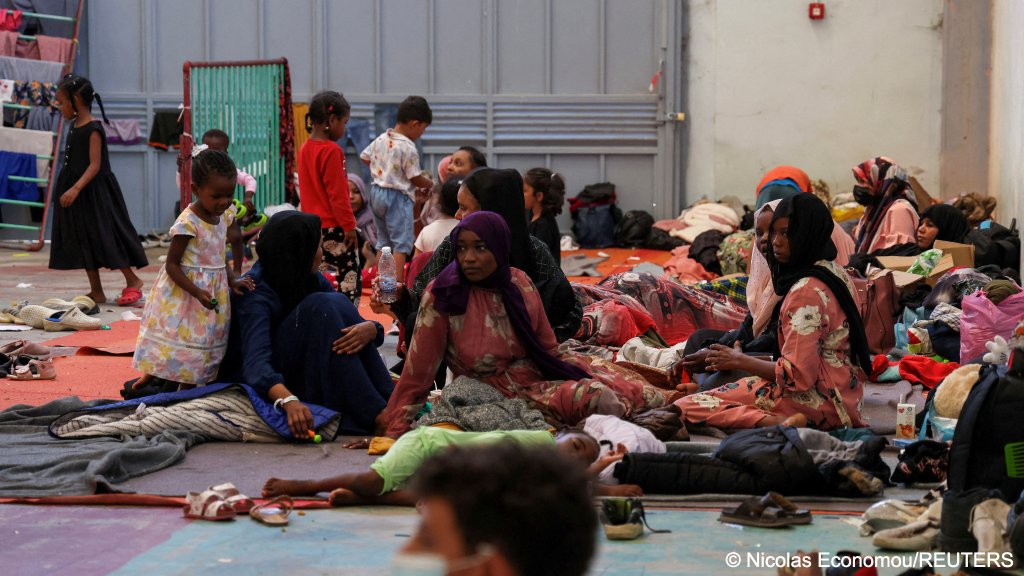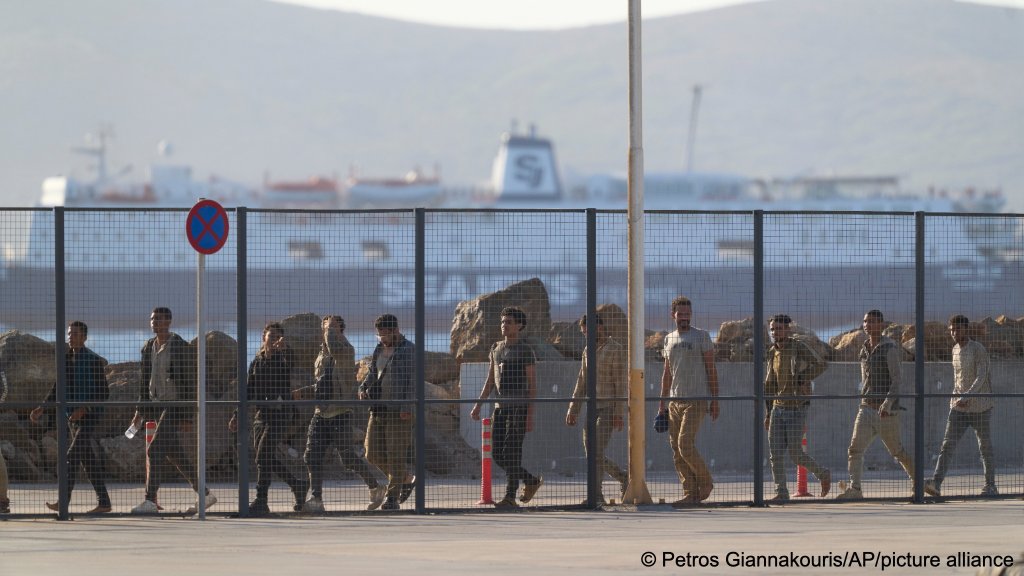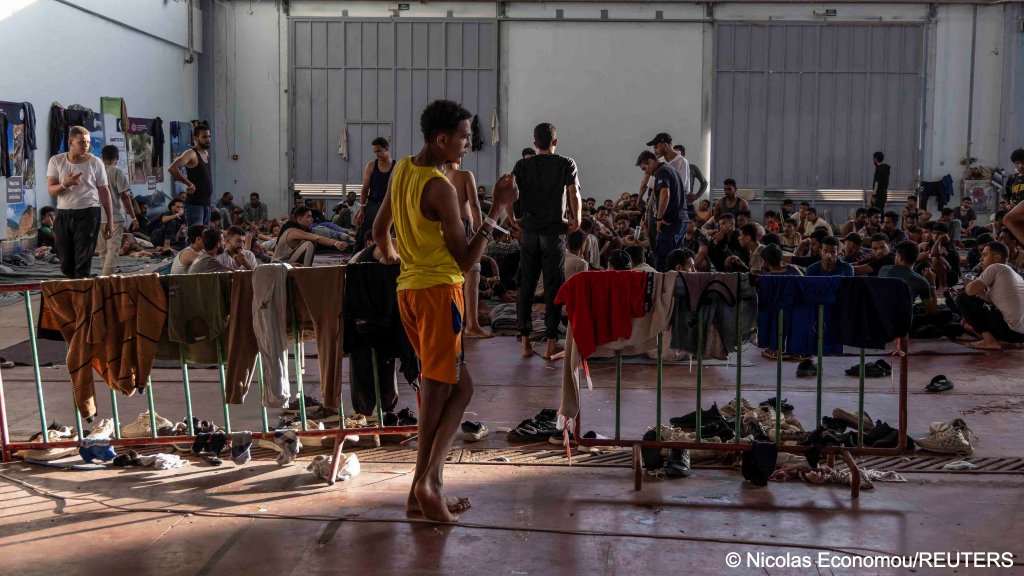A draft law proposes detention for people without the authorization to live in Greece but who refuse to leave. Other plans announced by the migration ministry include accounting for the funds spent on asylum benefits and NGOs.
On Thursday, July 17, Greece announced a draft law wherein people without authorization to live in Greece will face a minimum prison term of three years if they do not leave, the German news agency dpa reported.
Currently, people without the right to remain in Greece have not faced imprisonment. Instead, they are taken to a camp where they await their deportation at a later date. One key difference between the draft law and the current policy in place is that in a migrant camp, people are allowed to leave and have freedom of movement, although limited. Another key difference is the reframing of overstaying as a criminal offense with a penalty of imprisonment. People can only avoid detention if they voluntarily leave the country.
Under the draft law, if someone is denied asylum, they must leave the country or face criminal charges for staying. "In the future, those affected will only have two options: detention or return," the migration ministry stated. The draft is to be presented to parliament in Athens soon.

Provisions of the bill
Liberal, a local Greek news outlet, reported that the recently appointed migration minister, Thanos Plevris, said that the proposal to resort to administrative detention would have three provisions:
- There will be no legalization mechanism or pathway to legalize their stay in Greece for people entering the country irregularly
- People who cannot obtain asylum will have to leave the country or be charged with the criminal offense of overstaying
- A person charged with the offense of overstaying will be tried and immediately sent to prison if found guilty
Plevris was appointed minister of migration last month, shortly after a corruption scandal forced a mass resignation of cabinet officials. Local media have reported that since assuming the post, Plevris said he has already initiated a series of reviews aimed at tightening oversight and curbing costs related to irregular migration.
Read AlsoGreece appoints new migration minister

'Cents for cents' accounting
Plevris reportedly asked for a detailed breakdown of the exact cost per migrant housed in accommodation facilities and a review and re-evaluation of all benefits and allowances currently being provided.
A central focus of Plevris's early efforts has also been the role of non-governmental organizations (NGOs), which have long been involved in implementing European Union-funded migration programs in Greece. Plevris ordered a full audit of NGO funding and operations, asserting that their work, while often framed as humanitarian, constitutes "a profession, not altruism."
Further, Plevris also announced the re-evaluation of age assessment processes for unaccompanied minors. Under these plans, anyone who refuses to undergo the relevant medical examinations to determine their minor status will be considered an adult.
The initiatives under Plevris underscore a broader pivot by the Greek government toward more restrictive immigration controls. Most recent changes include the three-month suspension of asylum claims for people coming to Greece by boat from North Africa.
Regionally, Europe is tightening its borders as several EU countries grapple with pressure at their external borders and growing domestic unease over economic stability.
Read AlsoFrom north to south, Europe tightening migration policies

Drastic changes
Greece has moved to make drastic changes in its immigration policies. Long seen as a major entry point for people who are trying to enter the EU from Turkey or via the Mediterranean, Greece has struggled to manage the arrival of irregular arrivals against public services that are already strained by a prolonged economic crisis.
Athens has said that the series of changes in migration and asylum policy is in response to a dramatic increase in arrivals on the Greek island of Crete in recent months.
Numbers provided by the Hellenic Coast Guard state that 7,336 migrants arrived on Crete and the small, nearby island of Gavdos in the first half of 2025. Almost 2,000 more have arrived in July. UNHCR gives slightly higher figures for the period to July 6.
The numbers represent an almost 350 percent increase compared to 2024.
Read AlsoGreek coast guard rescues hundreds of migrants, as Libya-Crete route becomes busier
